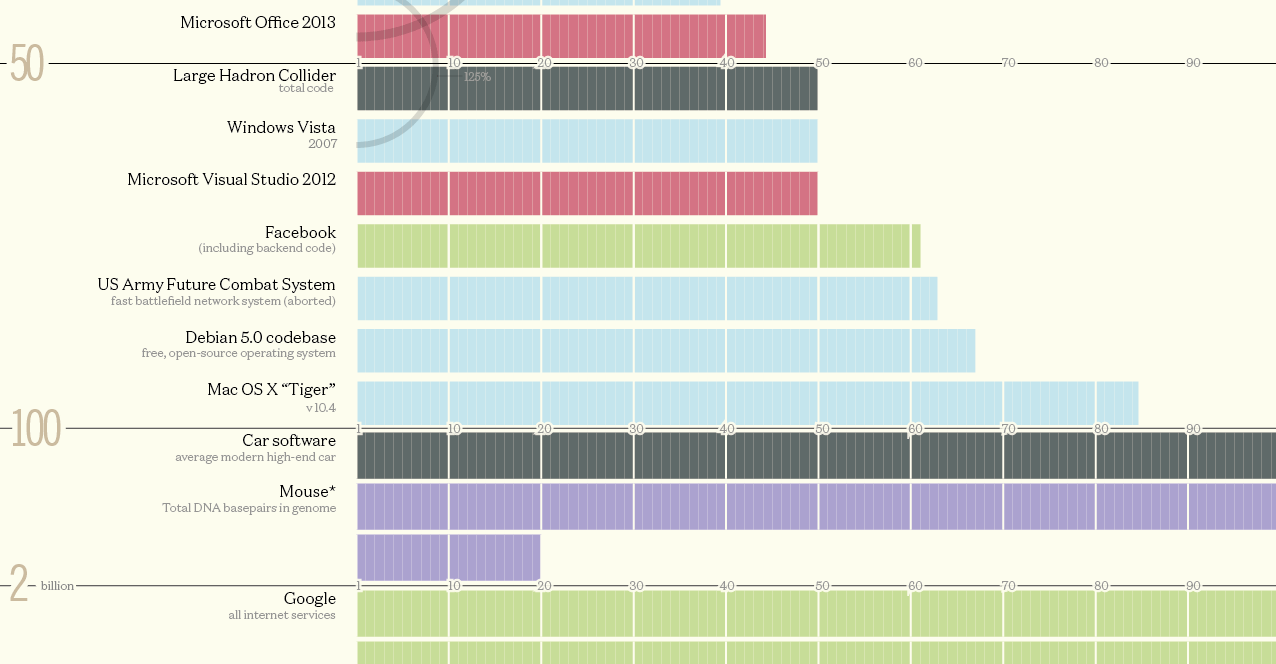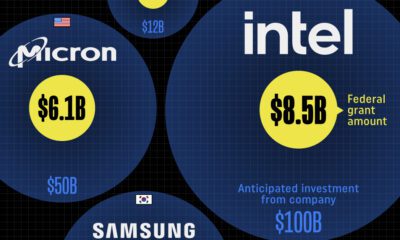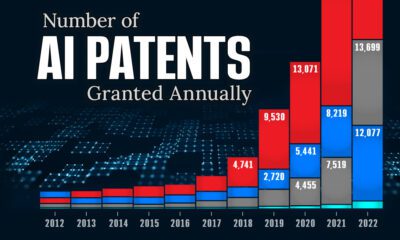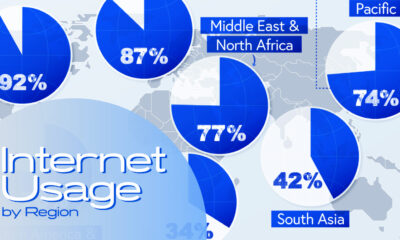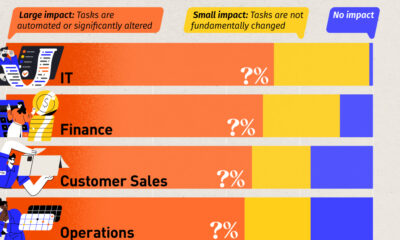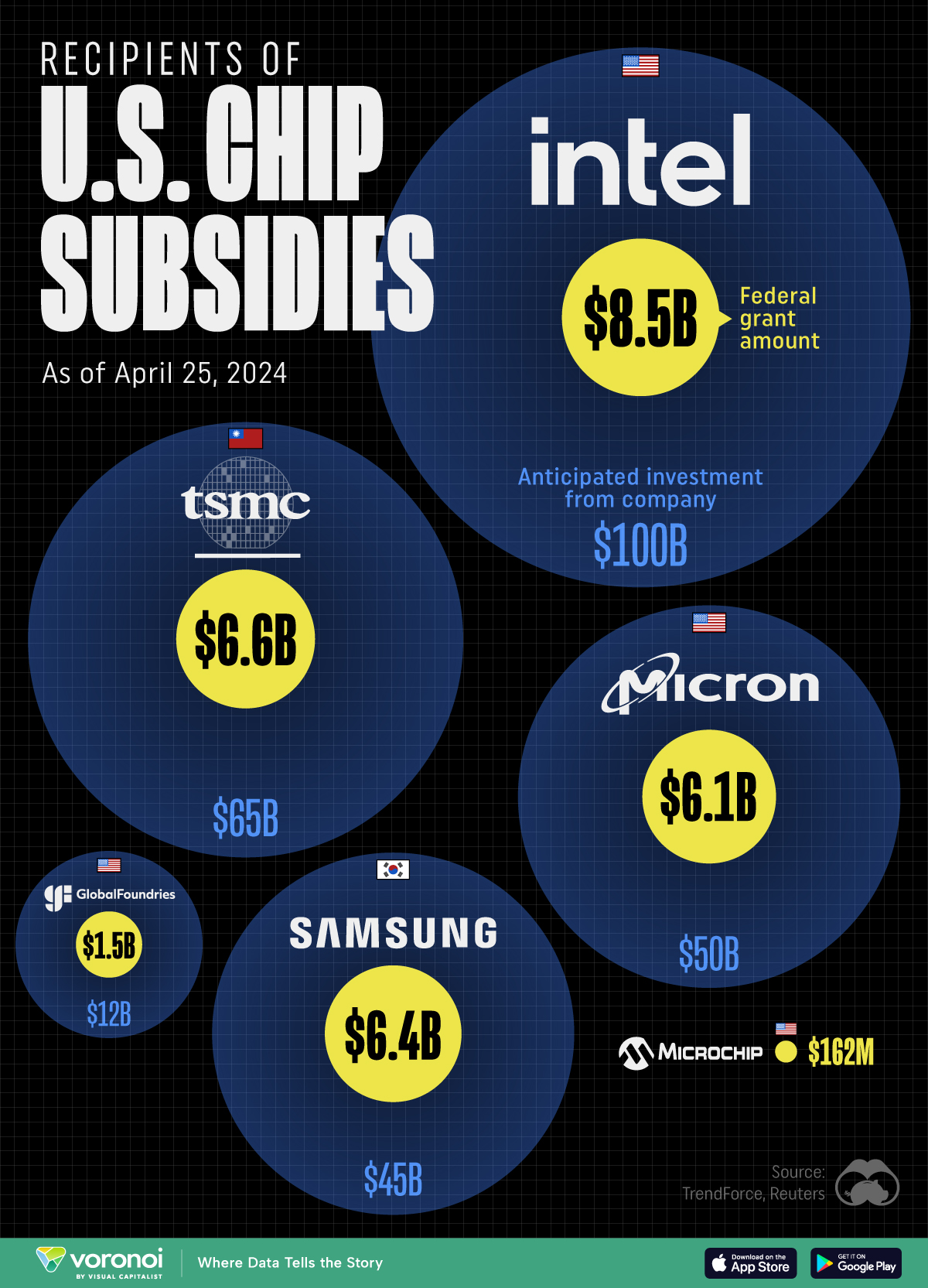Technology
How Many Millions of Lines of Code Does It Take?

How Many Millions of Lines of Code Does It Take?
Today’s data visualization comes from David McCandless from Information is Beautiful. Buy their awesome book called Knowledge is Beautiful – we own the physical version, and it’s full of great data visualizations.
How many millions of lines of code does it take to make the modern program, web service, car, or airplane possible?
The range is extraordinary: the average iPhone app has less than 50,000 lines of code, while Google’s entire code base is two billion lines for all services. And interestingly, the code behind machines such as fighter jets, popular video game engines, and even the Large Hadron Collider fall somewhere in between these two extremes.
Increasing Complexity
A million lines of code, if printed, would be about 18,000 pages of text. That’s 14x the length of War and Peace.
It’s more than what was needed to run old technologies like the Space Shuttle, a pacemaker, or even the game engine of Quake 3 – but it’s not enough to be the driving force behind the modern software that’s used in everyday life today.
- The control software to run a U.S. military drone uses 3.5 million lines of code.
- A Boeing 787 has 6.5 million lines behind its avionics and online support systems.
- Google Chrome (browser) runs on 6.7 million lines of code (upper estimate).
- A Chevy Volt uses 10 million lines.
- The Android operating system runs on 12-15 million lines.
- The Large Hadron Collider uses 50 million lines.
- Not including backend code, Facebook runs on 62 million lines of code.
- With the advent of sophisticated, cloud-connected infotainment systems, the car software in a modern vehicle apparently uses 100 million lines of code. This is according to Wired magazine.
- All Google services combine for a whopping 2 billion lines.
Applying the math above – that means it would take 36,000,000 pages to “print out” all of the code behind all Google services. That would be a stack of paper 2.2 mi (3.6 km) high!
Technology
All of the Grants Given by the U.S. CHIPS Act
Intel, TSMC, and more have received billions in subsidies from the U.S. CHIPS Act in 2024.
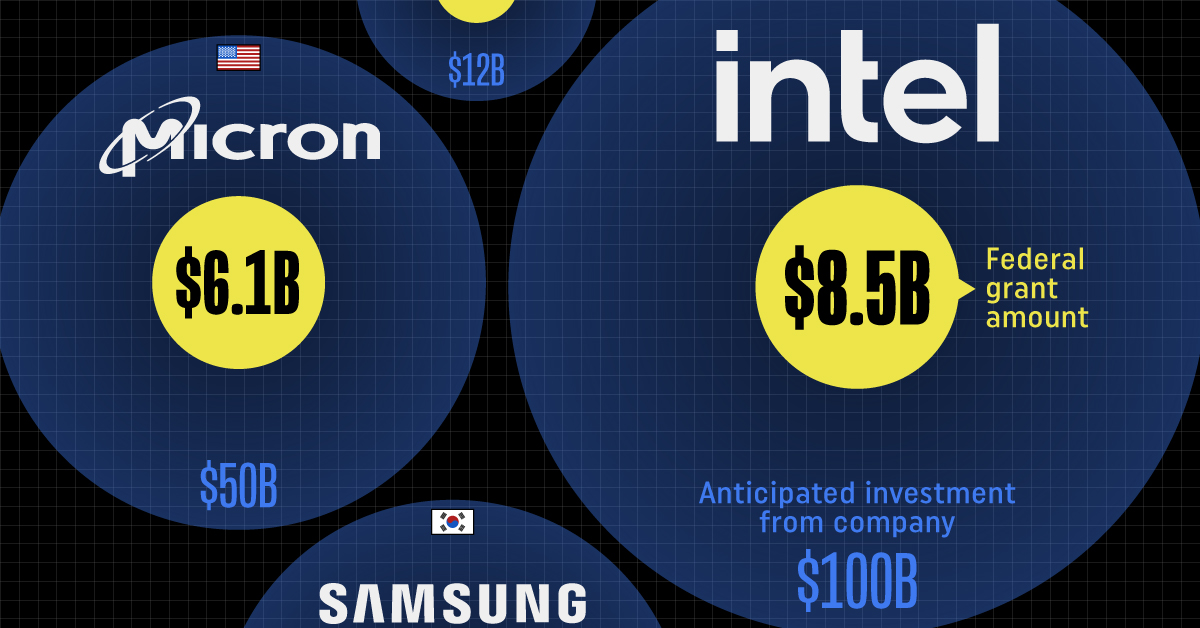
All of the Grants Given by the U.S. CHIPS Act
This was originally posted on our Voronoi app. Download the app for free on iOS or Android and discover incredible data-driven charts from a variety of trusted sources.
This visualization shows which companies are receiving grants from the U.S. CHIPS Act, as of April 25, 2024. The CHIPS Act is a federal statute signed into law by President Joe Biden that authorizes $280 billion in new funding to boost domestic research and manufacturing of semiconductors.
The grant amounts visualized in this graphic are intended to accelerate the production of semiconductor fabrication plants (fabs) across the United States.
Data and Company Highlights
The figures we used to create this graphic were collected from a variety of public news sources. The Semiconductor Industry Association (SIA) also maintains a tracker for CHIPS Act recipients, though at the time of writing it does not have the latest details for Micron.
| Company | Federal Grant Amount | Anticipated Investment From Company |
|---|---|---|
| 🇺🇸 Intel | $8,500,000,000 | $100,000,000,000 |
| 🇹🇼 TSMC | $6,600,000,000 | $65,000,000,000 |
| 🇰🇷 Samsung | $6,400,000,000 | $45,000,000,000 |
| 🇺🇸 Micron | $6,100,000,000 | $50,000,000,000 |
| 🇺🇸 GlobalFoundries | $1,500,000,000 | $12,000,000,000 |
| 🇺🇸 Microchip | $162,000,000 | N/A |
| 🇬🇧 BAE Systems | $35,000,000 | N/A |
BAE Systems was not included in the graphic due to size limitations
Intel’s Massive Plans
Intel is receiving the largest share of the pie, with $8.5 billion in grants (plus an additional $11 billion in government loans). This grant accounts for 22% of the CHIPS Act’s total subsidies for chip production.
From Intel’s side, the company is expected to invest $100 billion to construct new fabs in Arizona and Ohio, while modernizing and/or expanding existing fabs in Oregon and New Mexico. Intel could also claim another $25 billion in credits through the U.S. Treasury Department’s Investment Tax Credit.
TSMC Expands its U.S. Presence
TSMC, the world’s largest semiconductor foundry company, is receiving a hefty $6.6 billion to construct a new chip plant with three fabs in Arizona. The Taiwanese chipmaker is expected to invest $65 billion into the project.
The plant’s first fab will be up and running in the first half of 2025, leveraging 4 nm (nanometer) technology. According to TrendForce, the other fabs will produce chips on more advanced 3 nm and 2 nm processes.
The Latest Grant Goes to Micron
Micron, the only U.S.-based manufacturer of memory chips, is set to receive $6.1 billion in grants to support its plans of investing $50 billion through 2030. This investment will be used to construct new fabs in Idaho and New York.
-
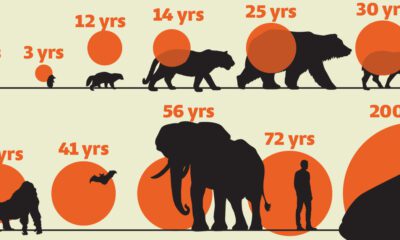
 Science7 days ago
Science7 days agoVisualizing the Average Lifespans of Mammals
-

 Markets2 weeks ago
Markets2 weeks agoThe Top 10 States by Real GDP Growth in 2023
-

 Demographics2 weeks ago
Demographics2 weeks agoThe Smallest Gender Wage Gaps in OECD Countries
-

 United States2 weeks ago
United States2 weeks agoWhere U.S. Inflation Hit the Hardest in March 2024
-

 Green2 weeks ago
Green2 weeks agoTop Countries By Forest Growth Since 2001
-

 United States2 weeks ago
United States2 weeks agoRanked: The Largest U.S. Corporations by Number of Employees
-
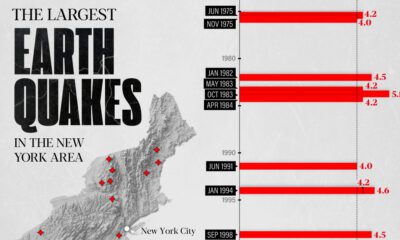
 Maps2 weeks ago
Maps2 weeks agoThe Largest Earthquakes in the New York Area (1970-2024)
-

 Green2 weeks ago
Green2 weeks agoRanked: The Countries With the Most Air Pollution in 2023

